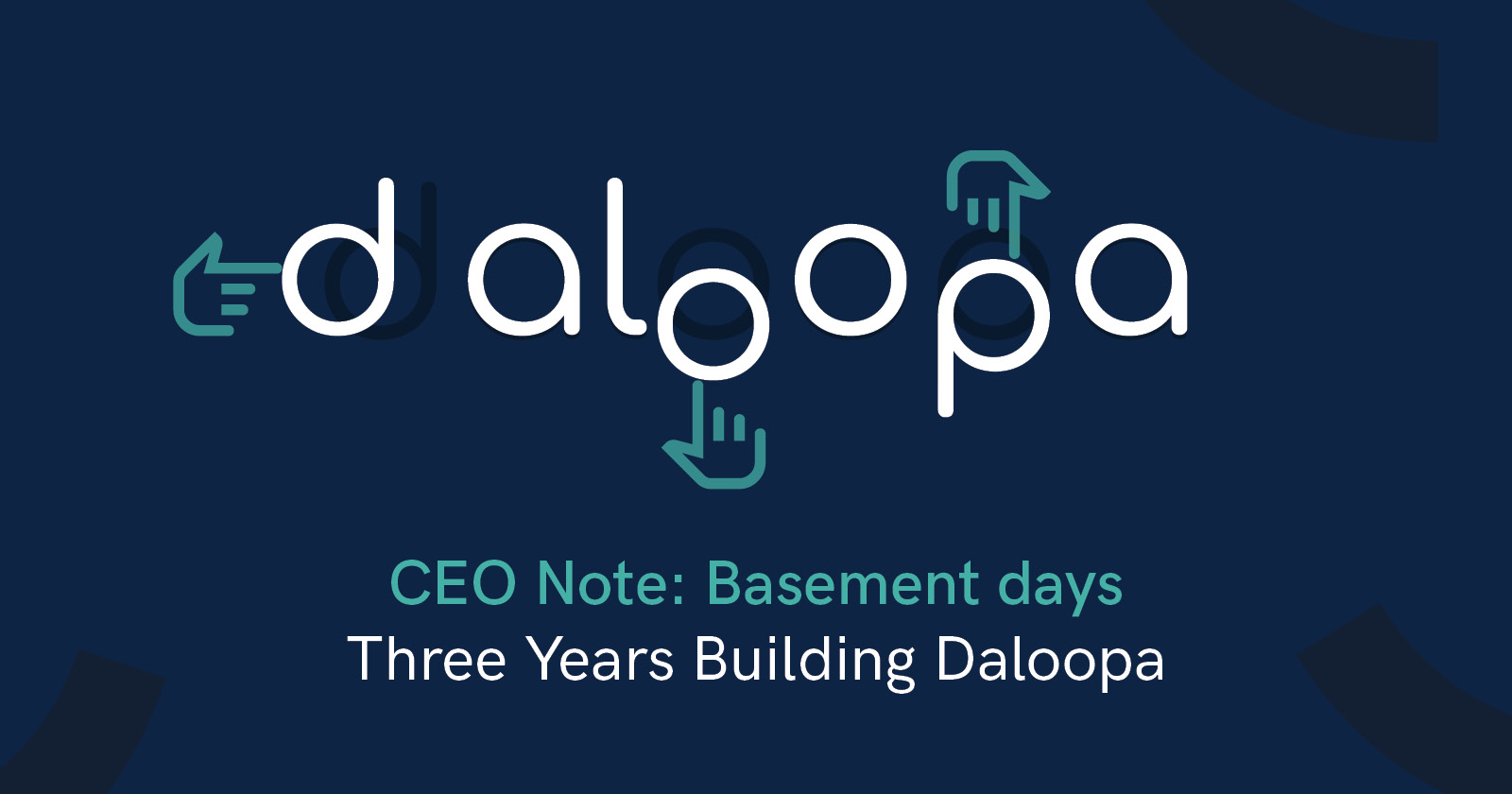Every startup goes through what we at Daloopa call the “basement days.”
One of the things people don’t appreciate about building a startup is how at the beginning – when you are working on the product – a lot of time can go by before you actually launch.
In our case, it was a full three years. For three calendar years we did nothing but build.
We started working in the basement of a Long Island house owned by co-founder Daniel Chen’s uncle. Hence, our description of the “basement days.”
Now we use the phrase “basement days” as shorthand for that time when a startup is building something while still unsure whether the product will work or not. And even if it does work, whether it will find an audience and market.
There were just three of us grinding away day after day.
There were times it was hard to see progress but little by little it became clear we were making headway and that effort allowed us to build a prototype. By the two-and-a-half year mark, we could see that we were onto something.
Daloopa was launched in 2019 after Jeremy Huang, Daniel Chen and I identified an opportunity in the market to provide financial analysts with accurate, timely data.
We had realized that every earnings period financial analysts struggle to manually identify data from corporate releases and re-type that information into their models fast enough to ask insightful questions on conference calls.
Based on my experience as a tech, media and telecom analyst at Point72 I knew that this was a persistent problem that affected a large number of people. We thought that some of the new AI applications could extract the data faster and more accurately.
Daloopa’s basement days consisted of the three of us working day-after-day on a financial tool that could reliably recognize and categorize data, especially unstructured information known as key performance indicators.
The other problem we had to solve during our basement days was what to eat.
We had no money so we needed to be frugal.
Daniel did some research to find the cheapest food per calorie. He found that dumplings had the lowest cost-per-gram of protein for any food.
So we drove to Chinatown in New York and bought thousands of dumplings. They came in bags of 50 each. We also bought a freezer from Costco to store the food.
We ate those meat and vegetable dumplings every lunch and dinner for months.
Jeremy now says he won’t eat another dumpling ever again.



